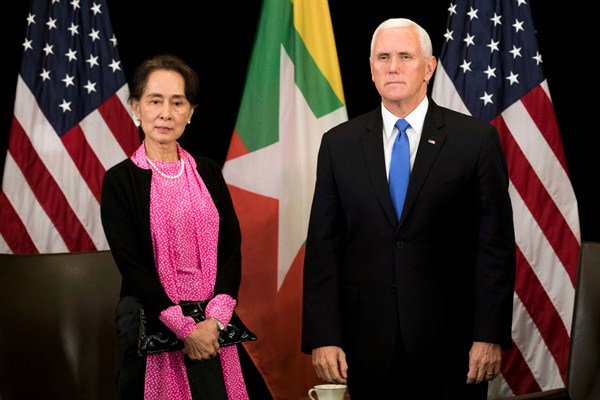During the first two years of the Trump administration, Washington has dramatically reduced its rhetorical focus on democracy promotion in Asia. For instance, President Donald Trump has mostly ignored issues of human rights and democracy when meeting with leaders of abusive regimes, like the Thai prime minister and junta leader, Prayuth Chan-ocha. This approach is consistent with Trump’s overall realpolitik; he usually does not raise rights issues in meetings with other authoritarian leaders, and he often seems to have more contempt for democratically elected leaders around the globe than for autocrats.
More recently, despite extensive evidence suggesting that the armed forces of Myanmar oversaw crimes against humanity and genocide against Rohingya Muslims in Rakhine state, in the west of the country, the State Department did not label the atrocities as genocide, as did the United Nations in a report released in August. The State Department’s own investigation into the Rakhine crisis instead accused Myanmar only of “planned and coordinated attacks” on the Rohingya minority.
At the same time, however, despite my own previous pessimism about the White House’s approach to democracy promotion, there are some signs that the Trump administration recognizes that focusing on human rights should remain a U.S. priority. Indeed, doing so would help differentiate the U.S. vision for Asia from China’s approach to the region, and also might bolster American links with populations in Asian countries, including Malaysia, Cambodia and Indonesia, where democracy still has significant appeal.

